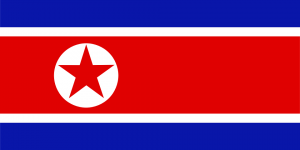By Thomas Lindemann
Translation: Davina Durgana
Passage au crible n°55

Pixabay
The death of President Kim Jong-Il and the probable succession by a triumvirate driven by his son Kim Jong-Un raises the question again of available options to appease and transform the North Korean regime. The first declarations of the Western chancelleries suggest that our leaders are primarily concerned to show their determination to resist any plans to attack North Korea. Some have even envisioned encouraging a Korean Spring to discard quickly the considerable military potential of this Asian Sparta. Yet, beyond the moral issues, it appears that this regime is not a power challenging the territorial status quo. Recent history shows that the renouncing of any offensive position remains possible if one takes greater account of the symbolic dimension of the aspirations of a regime seeking recognition.
> Historical background
> Theoretical framework
> Analysis
> References
North Korea is engaged in an armed conflict in 1950 against its southern neighbor. During the war, U.S. General MacArthur envisioned the recourse to the use of tactical nuclear weapons. The armistice was established in 1953 without a peace treaty regarding the 38th parallel. Since this date, many skirmishes have taken place without provoking a major armed confrontation. More recently, in the March 2010, North Korea was accused of sinking the South Korean corvette Cheonan. Due to this affair, the country was sanctioned and ostracized on the global scene. Then, the North Korean bombing of the island of Yeonpyeong – situated to the west of the peninsula and near the maritime boundary (contested on November 23rd, 2010) – brought attention to the fragile situation between the two Koreas. The new leader, Kim Jong-Un has just pledged that South Korea would be punished for its disrespectful behavior at the funeral of Kim Jong-Il. As for nuclear ambitions, North Korea has since 1993 violated the nuclear Non-Proliferation Treaty on multiple occasions. The Agreement Framework of 1994 and that of Beijing dating from 2007 have driven the temporary abandonment of nuclear weapons in exchange for economic concessions and a certain diplomatic recognition. However, in May 2009, North Korea conducted a second nuclear test, following a nuclear test in 2006. Today, negotiations are deadlocked.
Retain two currents of thought:
1. Traditional approaches to so-called rational choice must often consider that crises are resolved peacefully when the net material benefits of peace outweigh the net material benefits of war. Realist theorists emphasize the importance of security costs in the equation of costs/benefits. In this logic, the more important and credible military threats that are addressed by the United States to North Korea, the more North Korea should be encouraged to behave peacefully and to give up its nuclear plans. Other analysts of a more liberal orientation, place, for their part, more emphasis on the utility of economic sanctions to prevent the deviant behavior of a State.
2. However, a firm policy is far from sufficient and may even be counter-productive if it threatens the survival of a regime or induces threats publicly perceived as humiliating. In a more constructivist view, it seems that the North Korean actors are concerned with confirming a certain image of themselves on the political scene. Thus, diplomatic inclusion – symbolic recognition – could be determinant in the appeasement of this conflict. To the contrary, the stigmatization of a State risks leading to the radicalization of the identities of actors that are formed and transformed by these interactions.
All analysis of the North Korean situation raises two questions: are the ambitions of these leaders compatible with the territorial status quo and for what reasons are the North Korean leaders engaged in a policy that seems to be on the brink of the abyss?
Above all, despite the boastful rhetoric of North Korean leaders, there is little evidence in favor of a policy of territorial expansion because the legitimacy of the Kim dynasty resting on his deification is primarily internal. Additionally, since 1953, the North Korean State has had an advantage illustrated by searching for self-sufficiency from bellicose businesses. A very hypothetical conquest of South Korea would not pay for North Korean leaders. How could they in fact require that South Koreans enjoy a standard of living comparable to that of Spain in an authentically totalitarian state?
Everything leads us to believe that the North Korean regime exploits the nuclear agenda in order to gain better recognition. This then poses the problem of the legitimacy of a regime that struggles to meet the most basic needs of its population. Additionally, it is known that North Korean authorities were deeply offended by their inclusion in the Axis of Evil in 2002. George Bush has even called the North Korean regime of the “detestable pygmy” alluding to the small size of Kim Jong-Il. When the North Korean leader launched a satellite into the atmosphere with revolutionary songs on the American Day of Independence in 2009, the message seems clear: “We will force you to recognition by arms.”
Faced with such actors, threats, sanctions and disrespectful declarations could in turn drive a hardening of the regime. They could reinforce the internal legitimacy of the North Korean regime by considering opponents as traitors that were bought by Americans. This could also lead to military escalation. The outcome of this tough policy is negative. The South Korean President Lee Myung-bak has ended the “sunshine policy” of his predecessor by initiating military maneuvers close to the line. But this diplomatic isolation has not ended with the Obama administration coming to power. The latter has relied instead on “strategic patience” and has advocated a policy of openness previously conditioned by evidence of the North Korean goodwill. Worse yet, the South Korean President Lee has implicitly announced on August 15th, 2010 the imminent demise of the North Korean regime by introducing to its citizens the introduction of a new tax intended to prepare the unification of the two nations.
In this context, it is necessary to analyze the North Korean bombing of Yeonpyeong Island in December 2010 as the result mainly of existential fears, rather than as the manifestation of an imperial policy.
Bourmaud Daniel, « Le complexe obsidional de la Corée du Nord », in : Josepha Laroche (Éd.), Passage au crible de la scène mondiale, Analyse de la scène mondiale 2009-2010, Paris, 2011, L’Harmattan. Collection Chaos International, pp. 89-92.
Braud, Philippe, L’Émotion en politique, Paris, Presses de Sciences Po, 2006.
Laroche Josepha, La Brutalisation du monde, du retrait des États à la décivilisation, Montréal, Liber, 2012.
Lindemann, Thomas, Sauver la face, sauver la paix, sociologie constructiviste des crises internationales, Paris, L’Harmattan, 2010. Collection Chaos International.
Wendt, Alexander, Social Theory of International Politics, Cambridge University Press, 1999.




